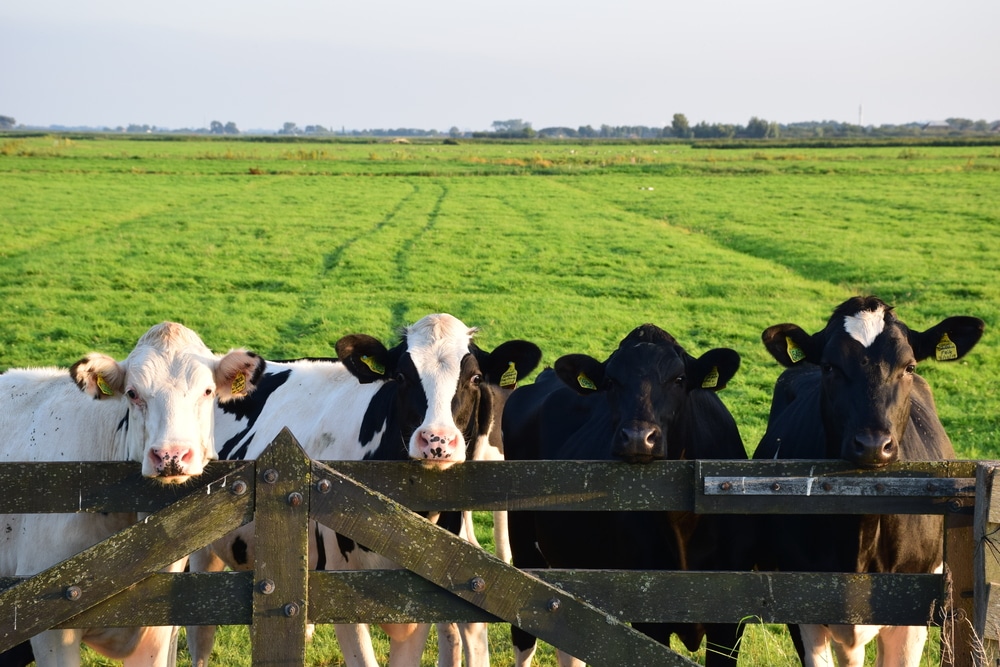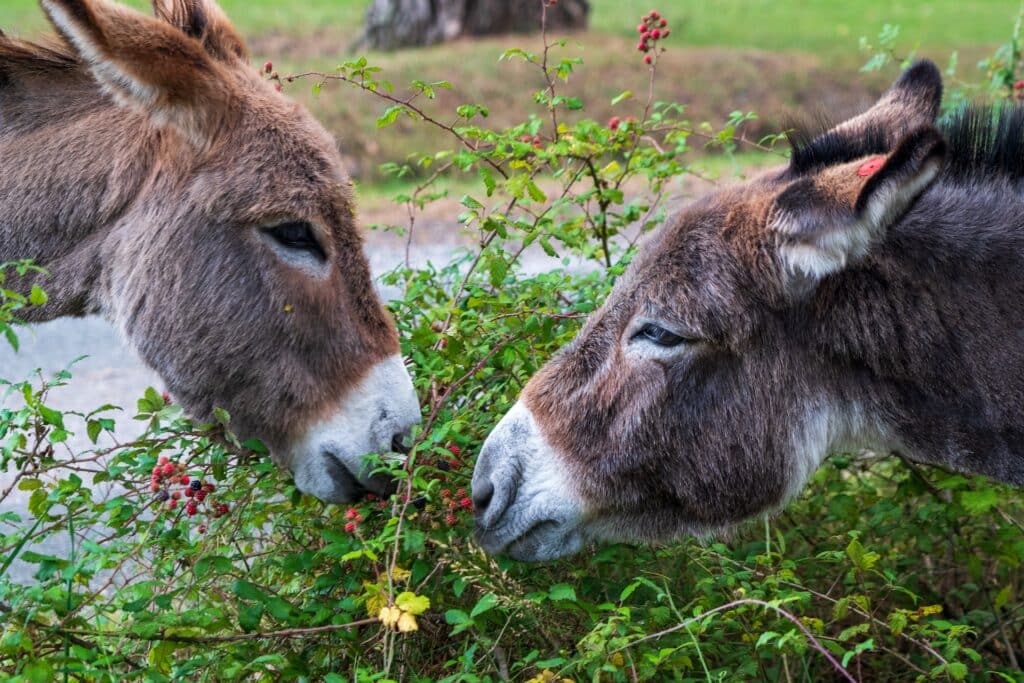
130+ Common Animals in Spanish (With a Downloadable PDF!)
Have you seen all of those Spanish-speaking countries on the map? As a whole, they’re huge, full of mountains, forests and jungles.
Go there, and you’re bound to find a donkey next to your Uber or see a cow casually strolling by the sidewalk. (This happened a few times while I was visiting my grandmother in the Dominican Republic).
Whether you’re a Spanish learner or a curious traveler, you’ve got to know how to talk about animals in Spanish.
This blog post will show you over 130 animal names in Spanish, expressions related to animals, animal classifications and important grammar rules.
Contents
- Animals in Spanish
- Animal-related Vocabulary
- Spanish Expressions with Animal Names
- Grammar Rules for Talking About Animals in Spanish
- And One More Thing…
Download: This blog post is available as a convenient and portable PDF that you can take anywhere. Click here to get a copy. (Download)
Animals in Spanish
1. Common Pets in Spanish

I’m not a pet lover, but I’m sure quite a few of you have pets at home.
Pet names in Spanish (not the kind you call your significant other), are good vocabulary to add to your language repertoire.
- Perro — dog
- Cachorro — puppy
- Gato — cat
- Pez — fish
- Pájaro / ave — bird
- Conejo — rabbit
- Hámster — hamster
- Conejillo de Indias — guinea pig
- Tortuga — turtle/tortoise
- Hurón — ferret
2. Farm Animals in Spanish

Even if you don’t live near a farm, knowing farm animals’ names in Spanish will come in handy when you’re visiting areas of Spanish-speaking countries that are more rural.
And then again, some people have farm animals as pets!
- Cerdo — pig
- Caballo — horse
- Burro — donkey
- Vaca — cow
- Pollo — chicken
- Gallo — rooster
- Oveja — sheep
- Cabra — goat
- Pavo — turkey
- Pato — duck
- Búfalo — buffalo
- Toro — bull
- Buey — ox
3. Sea Creatures in Spanish

Our planet is 71% water. This water is full of sea creatures (over 240,000 species!) with fun names in Spanish worth learning.
Don’t worry, though. I’ve only included the most relevant ones you might catch a glimpse of at the beach.
- Delfín — dolphin
- Tiburón — shark
- Ballena — whale
- Estrella de mar — starfish
- Calamar — squid
- Anguila — eel
- Caballito de mar — seahorse
- Medusa — jellyfish
- Foca — seal
- Nutria — otter
- Morsa — walrus
- León marino — sea lion
- Pingüino — penguin
- Pulpo — octopus
- Langosta — lobster
- Cangrejo — crab
- Gaviota — seagull
- Pelícano — pelican
- Camarón — shrimp
- Mantarraya — manta ray
- Almeja — clam
4. Animals with Wings in Spanish

Are you a bird enthusiast? If so, you’re gonna appreciate these 23 winged animal names in Spanish.
I thought about naming this list animals that fly. Then I figured—not all animals with wings have that ability!
- Loro — parrot
- Halcón — falcon
- Águila — eagle
- Cuervo — crow
- Pinzón — finch
- Pájaro carpintero — woodpecker
- Avestruz — ostrich
- Flamenco — flamingo
- Cigüeña — stork
- Gorrión — sparrow
- Grulla — crane
- Petirrojo — robin
- Canario — canary
- Colibrí — hummingbird
- Cisne — swan
- Albatros — albatross
- Búho — owl
- Paloma — dove
- Murciélago — bat
- Buitre — vulture
5. Rainforest Animals in Spanish

Learning Spanish for travel?
There’s a lot to see in South America—including the Amazon, the world’s largest rainforest.
Pack this short list of rainforest animal names for when you’re sailing down the Amazon river.
- Jaguar — jaguar
- Gorila — gorilla
- Anaconda — anaconda
- Chimpancé — chimpanzee
- Leopardo — leopard
- Oso perezoso — sloth
- Mono — monkey
- Rana — frog
- Oso hormiguero — anteater
- Orangután — orangutan
- Lémur — lemur
- Cocodrilo — crocodile
- Caimán — alligator
6. Animals from the Forest in Spanish

Skunks and deer are common in the Northeast U.S. where I grew up. I’m not a nature enthusiast, though. Needless to say, I’d creep past skunks those early winter mornings when I got up for the gym.
I’m guessing you’ll need this list if you too grew up near these creatures, and if you want to tell your new Spanish-speaking friends all about them.
- Venado — deer
- Ardilla — squirrel
- Zorro — fox
- Oso — bear
- Mapache — racoon
- Serpiente — snake
- Erizo — hedgehog
- Puercoespín — porcupine
- Panda — panda
- Alce — elk
- Topo — mole
- Canguro — kangaroo
- Coyote —coyote
- Koala — koala
- Jabalí — wild boar
- Alce — moose
7. Desert Creatures in Spanish

Fun fact: Chile’s Atacama desert is home to a resilient species of pink flamingos—and it’s one of the driest deserts in the world.
Deserts are common in Latin America.
Check out the short list of desert animals not already mentioned above or below.
- Camello — camel
- Escorpión — scorpion
- Serpiente de cascabel — rattlesnake
- Gato montés — bobcat
- Lagartija — lizard
8. Animals in the Savanna in Spanish

Lots of animals in Spanish lists include “zoo animals in Spanish.” Though it’s practical, I prefer to keep the nature theme going.
Savannas are diverse environments full of beautiful (and deadly!) creatures—some of which I’m listed below.
- Leopardo — leopard
- Tigre — tiger
- Elefante — elephant
- León — lion
- Rinoceronte — rhinoceros
- Jirafa — giraffe
- Hiena — hyena
- Cebra — zebra
- Guepardo — cheetah
- Gacela — gazelle
- Ñu — wildebeest
- Babuino — baboon
- Hipopótamo — hippo
- Chacal — jackal
9. Small Critters in Spanish

La Cucaracha is a fun children’s song in Spanish, but cucarachas are no joke.
They live everywhere—and they creep most of us out!
I’ve got fifteen small animal names in Spanish that are worth adding to your Spanish vocabulary, even if you’re not too fond of them like me.
- Ciempiés — centipede
- Araña — spider
- Hormiga — ant
- Mariposa — butterfly
- Abeja — bee
- Avispa — wasp
- Escarabajo — beetle
- Polilla — moth
- Grillo — cricket
- Saltamontes — grasshopper
- Mosca — fly
- Gusano — worm
- Caracol — snail
- Ratón — mouse
- Cucaracha — cockroach
To remember these animal names, it helps to learn them in context too. For example, you can look them up on FluentU, which has a multimedia dictionary that shows you related Spanish video clips and example sentences for each word.
FluentU takes authentic videos—like music videos, movie trailers, news and inspiring talks—and turns them into personalized language learning lessons.
You can try FluentU for free for 2 weeks. Check out the website or download the iOS app or Android app.
P.S. Click here to take advantage of our current sale! (Expires at the end of this month)

Now that you know about specific animal names in Spanish, let’s look at grammar next.
Animal-related Vocabulary
Common Female Animal Names
- Perra — female dog
- Gata — female cat
- Yegua — female horse
- Vaca — cow
- Gallina — hen
- Leona — female lion
- Gueparda — female cheetah
- Ratona — female mouse
Animal Baby Names
- Cachorro / perrito — puppy
- Gatito — kitten
- Alevín — baby fish
- Polluelo — baby bird
- Gazapo — baby rabbit
- Tortuguita — baby turtle/tortoise
- Huroncito — baby ferret
- Lechón — baby pig
- Potro — baby horse
- Pollino / burrito — baby donkey
- Ternero / becerro / vaquita — baby cow
- Pollito — baby chicken
- Cordero — baby sheep
- Chivo — baby goat
- Pavezno — baby turkey
- Patito — baby duck
- Ternero — baby buffalo
- Ternero / becerro — baby ox/bull
- Delfincito — baby dolphin
- Ballenato — baby whale
- Anguilita — baby eel
- Pólipo — baby jellyfish
- Langostino — baby lobster
- Aguilucho — baby eagle
- Buhito — baby owl
Collective Nouns
When talking about animals, you’ll often hear collective nouns—singular words that refer to groups of multiple things.
There are seven common collective nouns for Spanish animals, such as “herd,” “flock,” “litter” and more.
- Manada — herd / pod / pack / drove / parade
- Colonia — colony
- Rebaño — herd
- Bandada — flock
- Camada — litter
- Piara — drift, drove or sounder
- Banco / cardumen — school
Animal Classification
Now that you know how to say animal names in Spanish, let’s take it up a notch and learn how to talk about animal classification (la clasificación de los animales)!
- Los primates — primates
- Los domésticos — domestic
- Los salvajes — wild
- Los mamíferos — mammals
- Los anfibios — amphibians
- Los reptiles — reptiles
- Los insectos — insects
- Los arácnidos — arachnids
- Los vertebrados — vertebrates
- Los invertebrados — invertebrates
- Los peces — fish
- Los acuáticos — aquatics
- Las aves — birds
- Los vivíparos — viviparous
- Los terrestres — terrestrials
- Los aero-terrestres — aerial-terrestrial
- Los ovíparos — oviparous
Animal Body Parts
- Cuernos — horns
- Astas / cornamenta — antlers
- Orejas — ears
- Plumas — feathers
- Colmillos — fangs
- Pico — beak
- Dientes — teeth
- Bigotes — whiskers
- Alas — wings
- Joroba — hump
- Cuello — neck
- Cola — tail
- Melena / crin — mane
- Trompa — trunk
- Concha / caparazón — shell
- Branquias — gills
- Escama — scale
- Aletas — flippers / fins
- Brazos — arms
- Tentáculos — tentacles
- Antenas — antennae
- Pezuñas — hooves
- Garras — claws
- Patas / zarpas — paws
- Pelaje — fur
- Manchas — spots
- Rayas — stripes
Spanish Expressions with Animal Names

You’re not speaking like a native until you’ve learned and mastered these expressions using animal names.
Just like with English, Spanish speakers utilize animal names in phrases that have nothing to do with them.
I’ll spare you the more dirty phrases in Spanish, and share common ones you might come across.
- Burro — dummy / idiot
- Conejillo de indias — guinea pig (used as the subject of an experiment)
- Oveja negra — the black sheep (least liked)
- Rata — a dirtbag
- Serpiente — some who can’t be trusted
- Pez gordo — an important person (not very positive)
- El mono aunque vista de seda, mono se queda — a person can change how they look on the outside, but they can’t change who they are on the inside
- Matar dos pájaros de un tiro — to kill two birds with one stone
- Ave de mal agüero — a bearer of bad news
- Tomar al toro por los cuernos / Tomar al toro por las astas — to tackle an issue head-on, to take the bull by the horns
- Estar como pez en el agua — to be in your comfort zone
- Sentirse sapo de otro pozo — to be out of your comfort zone (literally, “to feel like a frog in another hole”)
- Tener un gato en los pantalones — to have ants in one’s pants
- El que madruga coge la oruga — the early bird gets the worm
- Tener más vidas que un gato — to be lucky
- Perro que ladra, no muerde — all bark and no bite
- Tener la vaca atada — to be wealthy and not have to work
- En boca cerrada no entran moscas — if you open your mouth and judge others, you will be subject to judgment
- De noche, todos los gatos son pardos — in the darkness, everything looks the same, making it easy to hide mistakes
- Gato con guantes no caza ratones — you have to take your gloves off and get your hands dirty to get things done
Grammar Rules for Talking About Animals in Spanish
Vocabulary lists can only go so far without grammar rules!
Here are two helpful grammar rules for speaking about animals in Spanish.
Animal Gender in Spanish
As we’ve seen in the tables above, there are sometimes different names for animals depending on their gender. To learn them properly, you’ll just have to start using them!
- Some animals go by the same name regardless of gender. E.g. pájaro (bird), tortuga (turtle)
- Some animal names have variations for females. E.g. perro / perra (male / female dog), gato / gata (male / female cat)
- Some animals have a completely different name for males and females. E.g. caballo / yegua (stallion / mare), gallo / gallina (rooster / hen)
If you’re unsure about the right word to use or you’d like to be crystal-clear about an animal’s sex, you can use hembra (female) or macho (male) after their name. For example:
Serpiente hembra — female snake
Tortuga macho — male turtle/tortoise
Using Diminutives for Animals in Spanish
If you want to refer to baby animals in Spanish, you can use diminutives to do so.
Diminutives are a Spanish suffix added to words to express something tiny or affection.
Simply remove the last vowel and add -ito or -ita at the end of the animal name. For example:
Perro (dog) → perrito / perrita
Ardilla (squirrel) → ardillita
You can also use cría (baby) plus de to refer to any baby animal:
Cría de lobo — baby wolf
Cría de elefante — baby elephant
This list of animal names in Spanish is a great starting point for adding unique vocabulary to your Spanish nature word bank.
Take your time with these Spanish animal names and study them part by part.
And One More Thing…
If you've made it this far that means you probably enjoy learning Spanish with engaging material and will then love FluentU.
Other sites use scripted content. FluentU uses a natural approach that helps you ease into the Spanish language and culture over time. You’ll learn Spanish as it’s actually spoken by real people.
FluentU has a wide variety of videos, as you can see here:

FluentU brings native videos within reach with interactive transcripts. You can tap on any word to look it up instantly. Every definition has examples that have been written to help you understand how the word is used. If you see an interesting word you don’t know, you can add it to a vocab list.

Review a complete interactive transcript under the Dialogue tab, and find words and phrases listed under Vocab.

Learn all the vocabulary in any video with FluentU’s robust learning engine. Swipe left or right to see more examples of the word you’re on.

The best part is that FluentU keeps track of the vocabulary that you’re learning, and gives you extra practice with difficult words. It'll even remind you when it’s time to review what you’ve learned. Every learner has a truly personalized experience, even if they’re learning with the same video.
Start using the FluentU website on your computer or tablet or, better yet, download the FluentU app from the iTunes or Google Play store. Click here to take advantage of our current sale! (Expires at the end of this month.)




